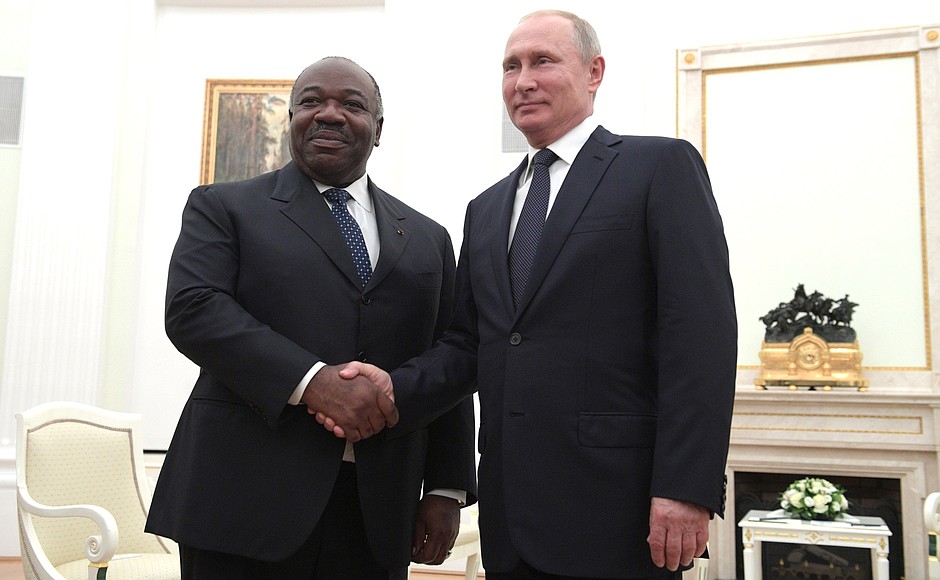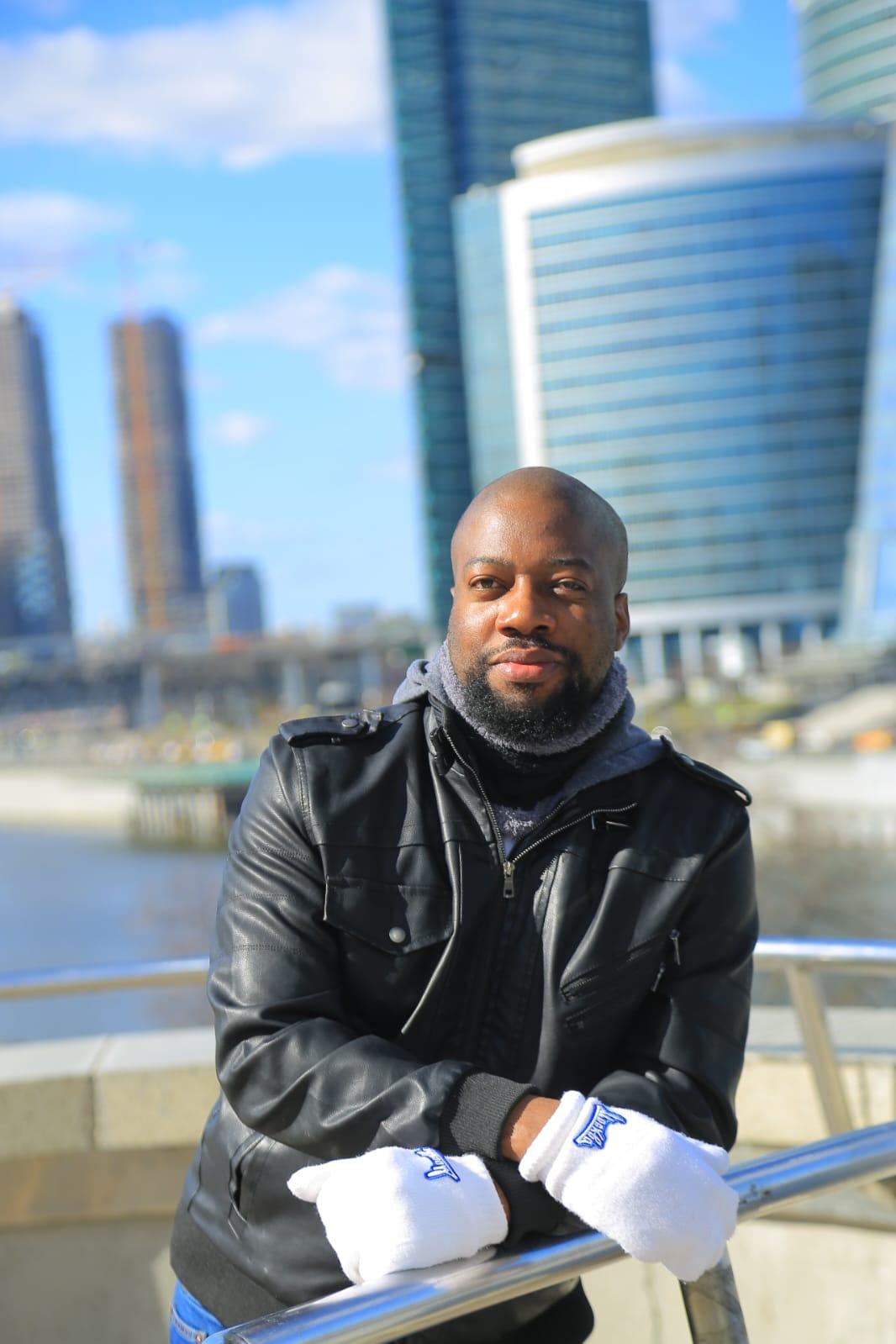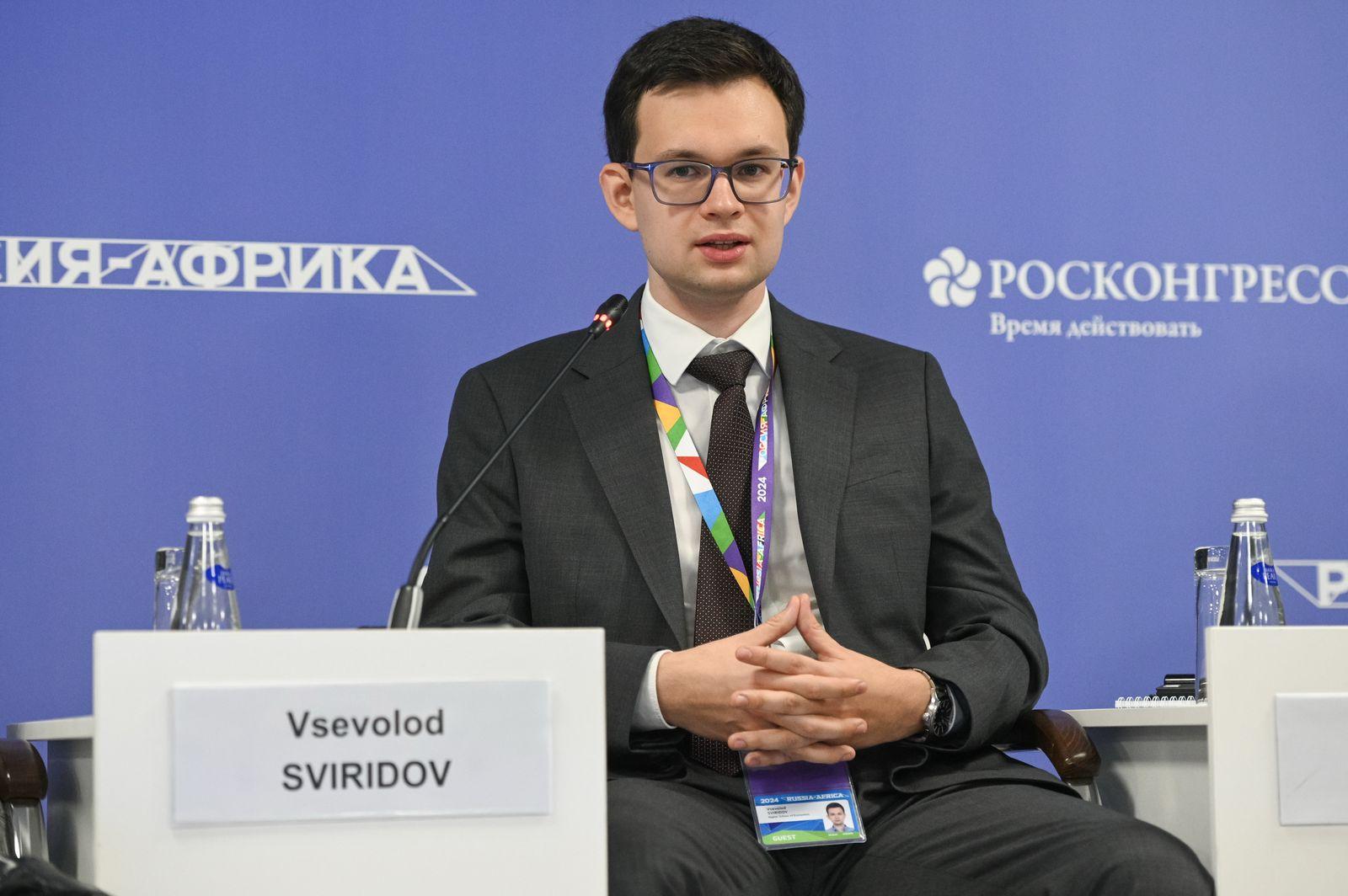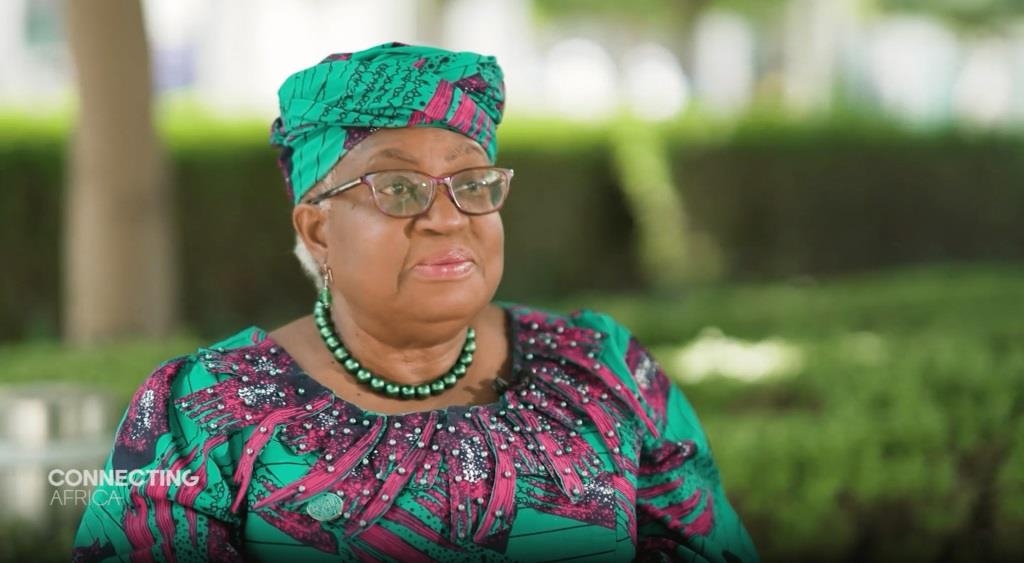World
Russia Reaffirms Commitment to Help Solve Endless Conflicts in Africa

By Kester Kenn Klomegah
On July 14, 2018, Russian President, Mr Vladimir Putin, warmly received two African leaders, Gabonese Ali Bongo Ondimba and Sudanese Omar al-Bashir, within the framework of the 2018 FIFA World Cup.
The two were on a three-day working visit part of which was to attend in the FIFA World Cup final match between France and Croatia at Luzhniki Stadium in Moscow. Together 12 presidents, prime ministers and many high-ranking representatives of foreign states attended the final match.
While meeting them separately in the Kremlin, Putin reaffirmed Russia’s role in and support for solving endless conflicts specifically in Central African Republic (CAR) and in Sudan, and other regional conflicts in parts of Africa. The meetings were also to consolidate the existing diplomatic relations.
Despite its significant mineral deposits and other resources, such as uranium reserves, crude oil, gold, diamonds, cobalt, lumber and as well as significantly large arable land, the CAR is among the ten poorest countries in the world.
Nearly 90% is among the most impoverished of the estimated population of around 4.6 million as of 2016. CAR has been engulfed in political and ethnic conflict.
“There is naturally a lot of work to do for us, including the regional settlement in Central Africa. We know that Gabon takes the most active part in this, making a significant contribution to this joint work,” he stressed at the meeting with Ali Bongo.
In this context, Gabon is now chairing the Economic Community of Central African States and this community or regional organization is directly involved in settling the conflict in the Central African Republic.
Gabon bordered by Equitorial Guinea to the west, Cameroon to the north and Republic of Congo on the east and south, and the Gulf of Guinea to the west. Since its independence from France in 1960, Gabon has had three presidents.
Abundant petroleum and foreign private investment have helped make Gabon one of the most prosperous countries in sub-Sahara Africa. Gabon’s economy is dominated by oil. Oil revenues constitute roughly 46% of the government’s budget, 43% of the gross domestic product (GDP), and 81% of exports.
During the meeting, Ali Bongo argued that “Russia is a huge country, which has enormous capabilities and which can, of course, contribute a lot to the continent. Everyone talks about Africa today, from most various angles. The continent is rich in resources, and we observe how many major states fight each other to gain access to these resources.”
From above statement, Ali Bongo was encouraging the Kremlin authorities, flex muscles to face risks and high competition, in order to raise Russia’s economic profile on the continent to match with its global status. As already known, African countries have seriously adopted “economic diplomacy” and are looking to find pragmatic solutions to issues relating to infrastructure development, foreign trade and investment cooperation.
The transcript posted to Kremlin official website did not say anything about oil business, but understandably, Russia seeks to cooperate in this sphere.
The Kremlin press service said that trade between Russia and Gabon doubled in 2017 to $47.7 (from $29.1 in 2016). Last October, Russia’s oil giant Rosneft signed a profile protocol of understanding with Gabon’s Oil and Hydrocarbon Ministry.
In June 2017, Zarubezhneft and the Gabonese oil company signed a Memorandum of Understanding – a framework agreement on key aspects of cooperation, including joint exploration of deposits and construction of oil and gas facilities in Gabon.
In his discussion with Putin, Al-Bashir noted that Russia and Sudan relations really demonstrated positive dynamics. “As for the economic sphere, we are developing a programme to share information and opinions on how we can develop these relations. Russian companies, including those producing mineral resources, actively work in Sudan. There will also be a meeting devoted to the agricultural sphere in September,” the Sudanese leader said.
Sudanese leader hopes to start tourist exchanges soon. He also encourages the participation of Russian oil and gas companies so that they would work in Sudan.
There are positive shifts in the military-technical sphere and in military cooperation. “We see big exchanges between specialists of Russia and Sudan. A big number of Russian specialists work in our country and this is why we highly praise the role that your country plays in preparing Sudanese military personnel,” Al-Bashir told Putin.
In fact, Putin and Al-Bashir last met and had a comprehensive business discussion November 2017 in Sochi. According to Kremlin website, the two sides have signed agreements and memos of understanding in the field of oil, gold mining, the peaceful use of nuclear power, higher education, external relations and agriculture.
In Sochi, Al-Bashir affirmed that Sudan is opening its doors for all countries and companies to invest in the country, indicating that Russian, Chinese and Arab companies are now operating in Sudan.
Interestingly, Al-Bashir has offered to help Russia in Africa. “Sudan has extensive ties in Africa and can help Russia develop relations with African countries. Sudan may become Russian’s key to Africa. We are a member of the African Union,” he promised Putin.
“We have great relations with all African nations and we are ready to help. We are also interested in developing relations with BRICS,” he concluded assertively. The BRICS group of emerging economies comprises Brazil, Russia, India, China and South Africa. South Africa will host a summit of BRICS countries on July 26-27.
Despite the fact that bilateral relations between Russia and with both Gabon and Sudan still below expectation, the three leaders Putin, Ali Bongo and Al-Bashir in their separate discussions expressed high optimism to take practical effective steps working towards its growth and sustainability.
It is worthy to note that Africa, indeed, has emerged as a playground for foreign powers especially Asian powers including China, India and Japan; each with its economic interests in the region and trying to expand its influence in strategic ways. In principle, all three leaders (Putin, Ali Bongo and Al-Bashir) have agreed that relations, in anyway, be developed in all directions between their individual states and Russia. *Kester Kenn Klomegah writes about Russia, Africa and BRICS.
World
Moscow: World-Renowned Fashionable City

By Kestér Kenn Klomegâh
Moscow is increasingly becoming popular among foreigners due to multiple reasons among them is its fashionable architecture and friendly people. Moscow’s architecture is world-renowned. In addition, Moscow’s status as the spiritual center of Russian orthodoxy and metropolitan buildings attract tourists from around the world. For much of its architectural history, Moscow is dominated by Orthodox churches.
Situated on the banks of the popular Moskva river, cultural parks and recreational centers offer an additional attraction especially during spring, summer and autumn seasons. The city has a population estimated at over 13 million. And public transport system is excellent for easy and fast connection to any part of the city. Today, the Moscow Metro comprises twelve lines, mostly underground with a total of 203 stations.
Moscow mayor Sergei Sobyanin shares in an interview with local Russian media that Moscow is becoming the world’s best megacity. But for South African Fashion entrepreneur, Stephen Manzini, Moscow’s contrasting features make it more fashionable to explore for fun and entertainment. Read Stephen Manzini’s impressions here:
Would you describe Moscow as a ‘fashionable’ city, if fashion is not limited to clothes and bags?
Moscow can be described as a fashionable city if it wasn’t for the weather. We would see beautiful display of runway pieces on the streets, however we do see this in indoor spaces it’s just overshadowed outdoors by the winter coats and jackets. Walking about Moscow does give you a European fashion appeal.
But Moscow as a fashionable city, do you think it is inaccessible from consumers, from tourists?
Moscow the fashionable city can be accessible to consumers. However when it comes to tourists, it’s a bit inaccessible as it takes on-site education to understand the dynamics. It cannot be understood from a distance due to the neo-propaganda that overshadows it.
Do you mean to conclude that cities such Venice, Miami, New York and London are more fashionable and attract more customers, tourists than Moscow?
Moscow’s tourism industry is barely in existence. To no fault of it’s own. Unfortunately, global online search engines are very unkind in referring to it as an undesirable tourist destination.
How then would you suggest rebranding Moscow?
The rebranding of Moscow would have to be intentional and would not happen overnight. It will have to start at a political level and then cascade it’s way to media and tourism.
World
Shockwaves Over Trump’s Tariffs Reverberate Across Africa

By Kestér Kenn Klomegâh
After taking office early 2025, U.S. President Donald Trump has embarked on rewriting American foreign policy and plans to create a new geopolitical history under the “America First” doctrine.
The first three months have seen efforts to implement tariffs, which finally was splashed early April world-wide, including on a grand scale across Africa.
Seemingly, a blanket of tariffs is one of the standout actions of the new administration. Trump’s changing approach to the world, using geoeconomic tools, including tariffs has now sparked extensive debates and discussions.
Our media chief, Kestér Kenn Klomegâh, took a quick chance and asked Vsevolod Sviridov, deputy director at the High School of Economics (HSE) University Center for African Studies, a few questions pertaining to the aspects and implications of the U.S. tariffs for Africa. Here are the interview excerpts:
How would you interpret trade war between China and the United States?
There has been a global trend towards overspending over the last two decades. We have seen commodity boom, rise of China with its global investments drive and infrastructure development projects like BRI, excessive budget spending by the OECD countries during COVID-19, etc. Now countries are trying to optimize their spending. Considering that there is a certain trend towards deglobalization, external trade and deficits are the first to fall victims to this policy. While China almost halved its lending, US are trying to cut their ODA (see South Africa’s case) and adjust their trade deficit, which is fuelling their vast debt.
What could be the reasons for Donald Trump to extend that kind of economic policy, trade tariffs, to Africa?
His latest actions indicated that was possible. Trump has imposed increased tariffs on 14 African countries, including South Africa (30%), Madagascar (47%), Tunisia (28%), Côte d’Ivoire (21%), and others. The primary selection criterion was the trade deficit with the U.S., though there are exceptions, such as Libya, which was left off the list despite a US$1 billion deficit. Additionally, seven more countries, including Egypt, Morocco, and Kenya, will face a base tariff of 10%, meaning that for Washington stable relations with them are more important.
The hardest-hit country will be Lesotho (50%), where the textile industry, heavily reliant on the U.S. market, will suffer. However, South Africa will bear the greatest overall impact, as it accounts for 70% of the U.S.-Africa trade deficit. In addition to the 30% base tariff, there will be an extra 25% duty on imported cars. This will affect factories operated by VW, Toyota, BMW, and other automakers, whose exports to the U.S. total US$2-3 billion annually. Angola, which had backed the Democratic Party, is also facing penalties (32%).
If these tariffs take effect as announced, they could lead to the collapse of African Growth and Opportunity Act (AGOA). However, the U.S. has not needed AGOA as much since the 2010s when it reduced dependence on African oil and gas. AGOA is set to expire in September 2025, and Trump’s actions make its renewal highly unlikely.
Trump has suggested that affected countries relocate production to the U.S., but this is difficult for African nations that mainly export raw materials. The new tariff preference system is expected to consider political and economic factors, making it less predictable and less favourable for African suppliers. On the other hand, this shift could encourage African countries to focus on regional markets and develop industries tailored to their domestic economies.
It could be excellent, from academic perspectives, to evaluate and assess the impact of AGOA in relation to Africa?
For Africa, the African Growth and Opportunity Act (AGOA) meant establishment of several mainly export-oriented industries, like textile or car manufacturing. For instance, almost 2/3 of cars manufactured in RSA are being exported to US and Europe, with only 1/3 being sold on the local market and tiny part exported to other African countries (20k out of 600k prod).
They created employment opportunities for locals but never contributed to local markets and industries development, technology and knowledge sharing. Collapse of AGOA would mean additional opportunities for African industries and producers to target local and regional markets and develop industrialization strategies considering their national interests first (like Trump does).
Assessing the reactions over the tariffs world-wide, and talking about the future U.S.-Africa trade, and the African Continental Free Trade Area (AfCFTA), what next for Africa?
The African Continental Free Trade Area (AfCFTA) gives Africa a chance to embark on the hard and long journey of developing intraregional trade. Still this emerging market could be easily used by non-African suppliers as a tool to expand their presence, given that without protection nascent African industries are hardly able to compete in price and from time to time in quality. Especially now, when we are clearly seeing that the US are more interested in selling then buying. So any external aid and knowledge sharing assistance in this sphere should be received with caution.
World
Trump’s Tariffs Will Affect Global Trade—Okonjo-Iweala

By Adedapo Adesanya
The Director-General of the World Trade Organisation (WTO), Mrs Ngozi Okonjo-Iweala, has said the recent tariffs announced by the United States would have substantial implications for global trade and economic growth prospects.
Mrs Okonjo-Iweala said this in a statement in reaction to recent tariffs imposed on goods from other countries by US President Donald Trump.
The WTO DG added that the organisation was closely monitoring and analysing the measures announced by the United States on April 2, 2025.
She noted that many members have reached out to the WTO and the organization is actively engaging with them in response to their questions about the potential impact on their economies and the global trading system.
“While the situation is rapidly evolving, our initial estimates suggest that these measures, coupled with those introduced since the beginning of the year, could lead to an overall contraction of around 1 per cent in global merchandise trade volumes this year, representing a downward revision of nearly four percentage points from previous projections.
“I’m deeply concerned about this decline and the potential for escalation into a tariff war with a cycle of retaliatory measures that lead to further declines in trade,” the WTO DG stated.
She, however, noted that despite the emerging tariffs war, the vast majority of global trade is still being conducted under the WTO’s Most-Favored-Nation (MFN) terms.
“Our estimates now indicate that this share currently stands at 74 per cent, down from around 80% at the beginning of the year. WTO members must stand together to safeguard these gains,” the former Nigeria’s Finance Minister said.
Nevertheless, Mrs Okonja- Iweala urged caution while advising members to utilise the platform of WTO to prevent the tariff war from escalating.
“Trade measures of this magnitude have the potential to create significant trade diversion effects. I call on Members to manage the resulting pressures responsibly to prevent trade tensions from proliferating.
“The WTO was established to serve precisely in moments like this — as a platform for dialogue, to prevent trade conflicts from escalating, and to support an open and predictable trading environment. I encourage Members to utilize this forum to engage constructively and seek cooperative solutions,” she remarked.
-

 Feature/OPED5 years ago
Feature/OPED5 years agoDavos was Different this year
-
Travel/Tourism9 years ago
Lagos Seals Western Lodge Hotel In Ikorodu
-

 Showbiz2 years ago
Showbiz2 years agoEstranged Lover Releases Videos of Empress Njamah Bathing
-

 Banking7 years ago
Banking7 years agoSort Codes of GTBank Branches in Nigeria
-

 Economy2 years ago
Economy2 years agoSubsidy Removal: CNG at N130 Per Litre Cheaper Than Petrol—IPMAN
-

 Banking2 years ago
Banking2 years agoFirst Bank Announces Planned Downtime
-

 Sports2 years ago
Sports2 years agoHighest Paid Nigerian Footballer – How Much Do Nigerian Footballers Earn
-

 Technology4 years ago
Technology4 years agoHow To Link Your MTN, Airtel, Glo, 9mobile Lines to NIN













